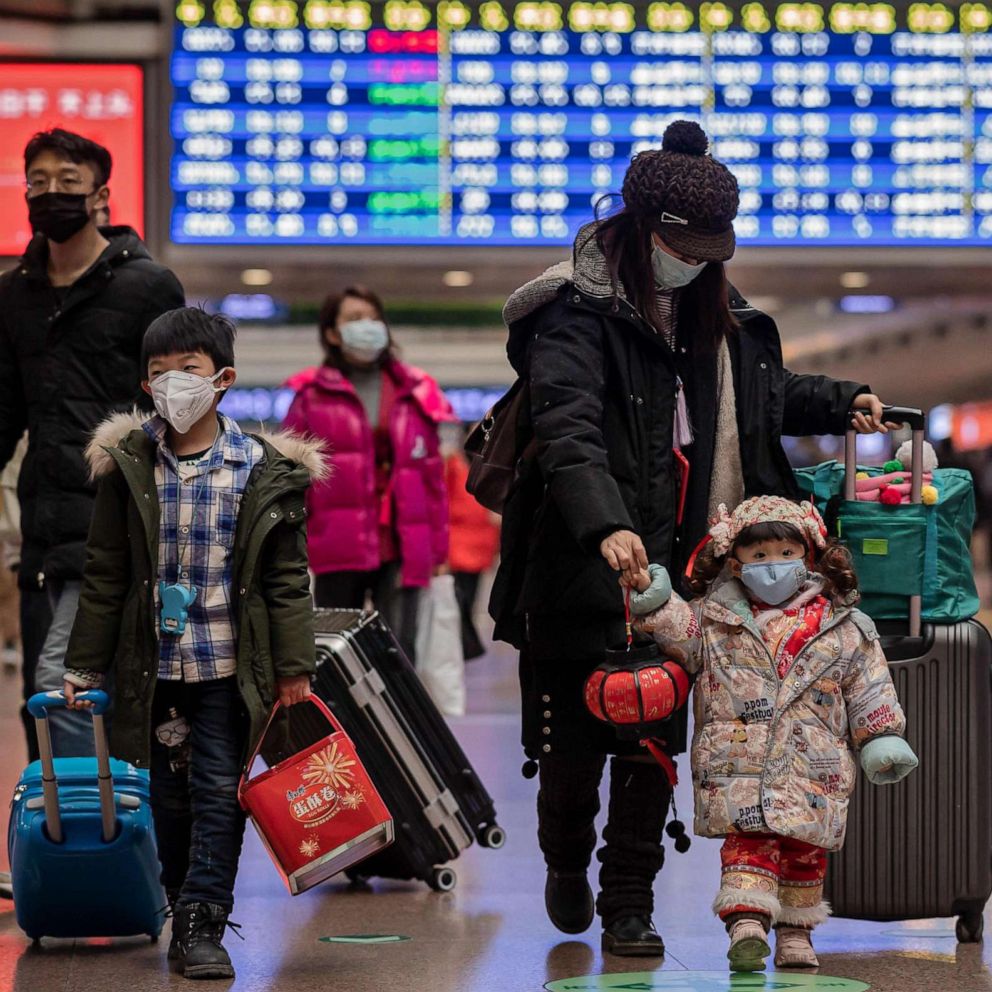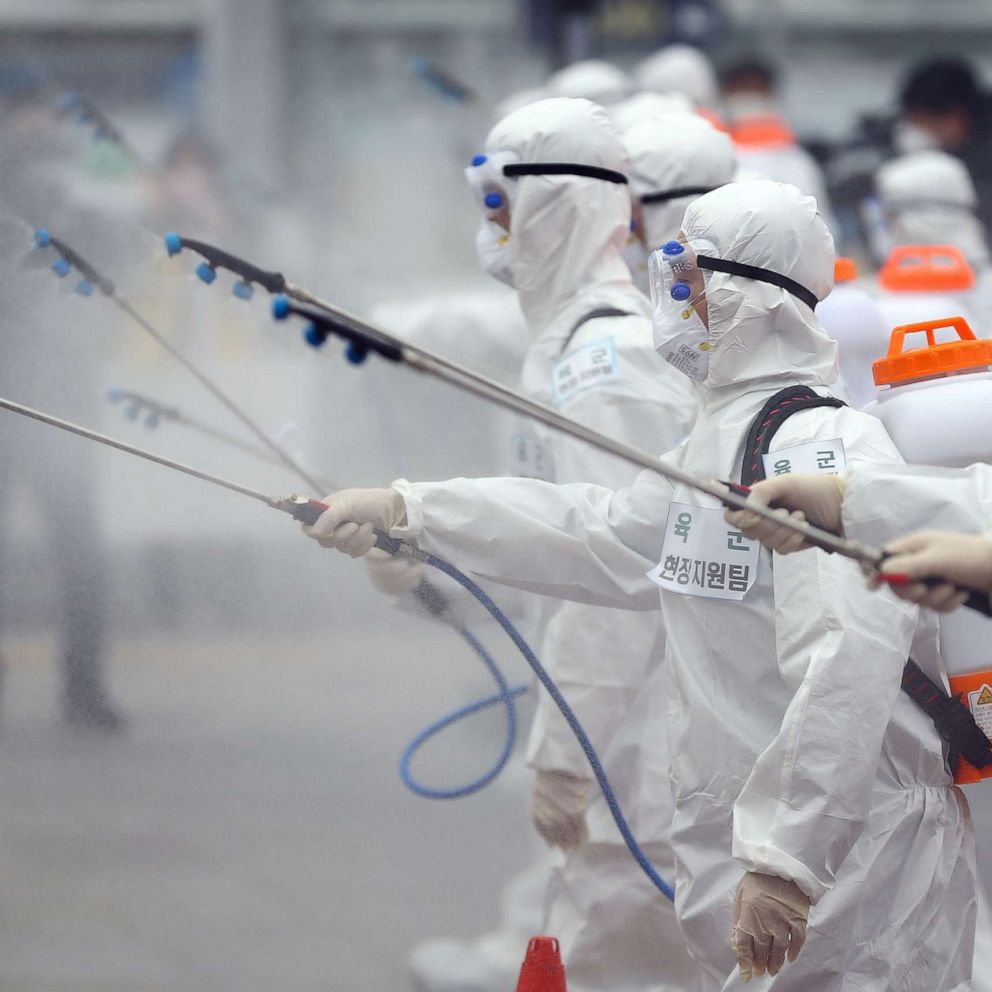White House task force stays but public hearing less from experts Fauci, Birx at critical time
With task force briefings gone, so is their daily guidance as country reopens.
As President Donald Trump pushes for a quick economic revival and paints a rosy picture of the administration's response, the public is hearing much less from the task force's key health experts, Drs. Anthony Fauci and Deborah Birx, whom many Americans have grown to trust and rely on.
After holding close to 40 coronavirus task force briefings over the span of two months, Trump, faced with growing criticism, has ended the daily sessions at which Fauci and Birx gave expert guidance that at times challenged his constant optimistic take on the crisis.
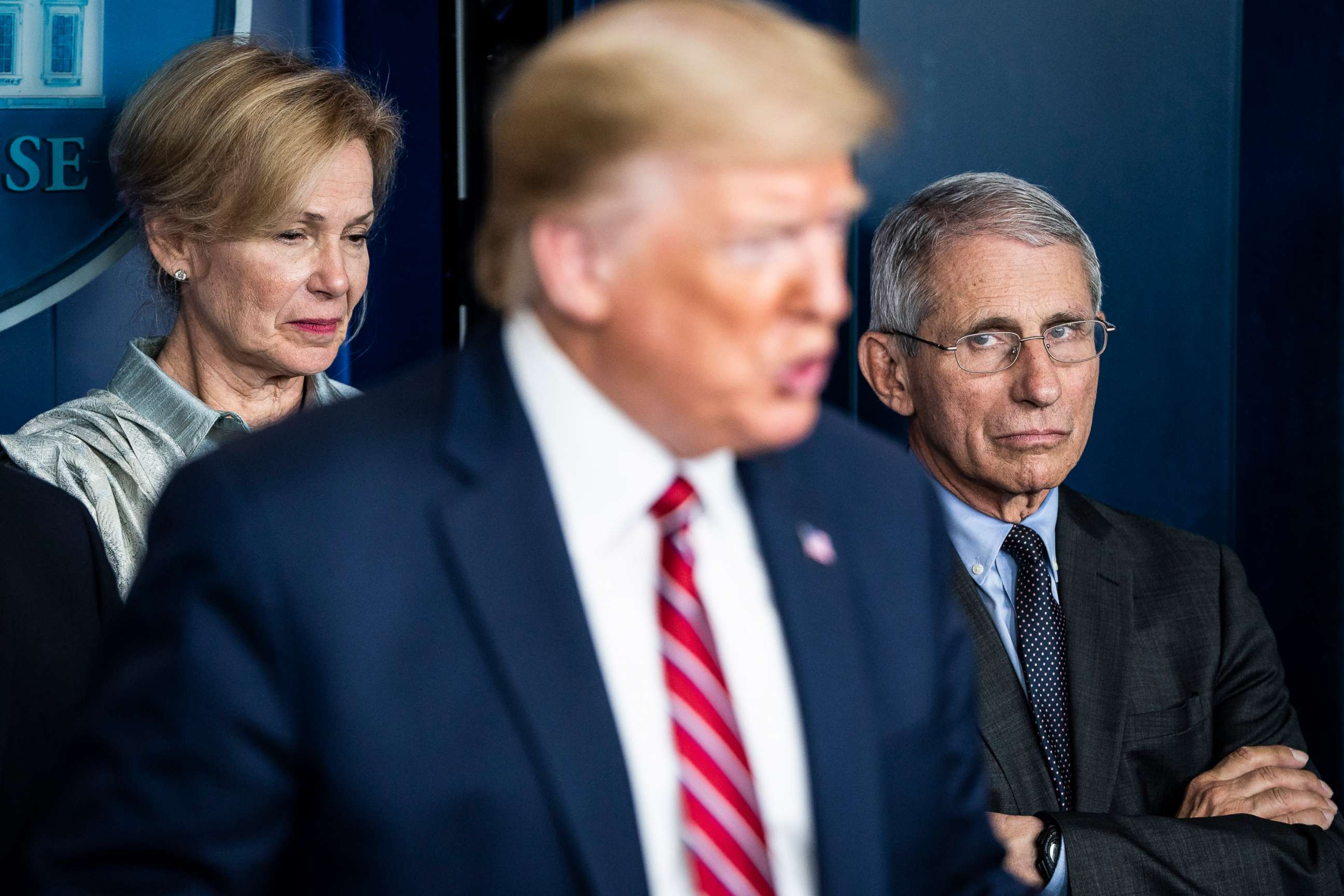
The move to end the briefings -- and with that hearing from the two experts -- comes when the public could benefit from health guidance maybe the most -- as roughly 30 governors ease social distancing restrictions in their states, even as the country's COVID-19 death toll is rising, and Americans grapple with uncertainty, faced with the fearful choice between life and livelihood.
John Cohen, a former acting undersecretary for intelligence at the Department of Homeland Security who managed crisis situations for both Republicans and Democrats at national and state levels, and now an ABC News contributor, said such unbiased guidance is vital.
"During any type of crisis situation, it's critical our government provides accurate, objective information and that the people who provide that information are viewed as credible experts. It shouldn't come from people who are viewed as having a political agenda. It should come from people who have an in-depth and thorough understanding of crisis response protocols," Cohen said.
"In this case, it's experts like Doctors Fauci and Birx, as opposed to the White House press secretary or political advisers to the president and vice president."
A senior White House official said the doctors would continue to play an advisory role when Vice President Mike Pence said Tuesday the task force would disband around Memorial Day, only to have Trump, facing questions about ending it now, tweet Wednesday that it would continue, focusing on vaccines and therapeutics.
"The fact that they were even talking publicly about getting rid of the task force was highly problematic," said Cohen, who served under the Clinton, George W. Bush and Obama administrations.
"By announcing they're getting rid of the task force, and then within 24 hours, saying something different, this is an example of the inconsistent and confusing information that has been provided by the White House during this entire crisis," he said.
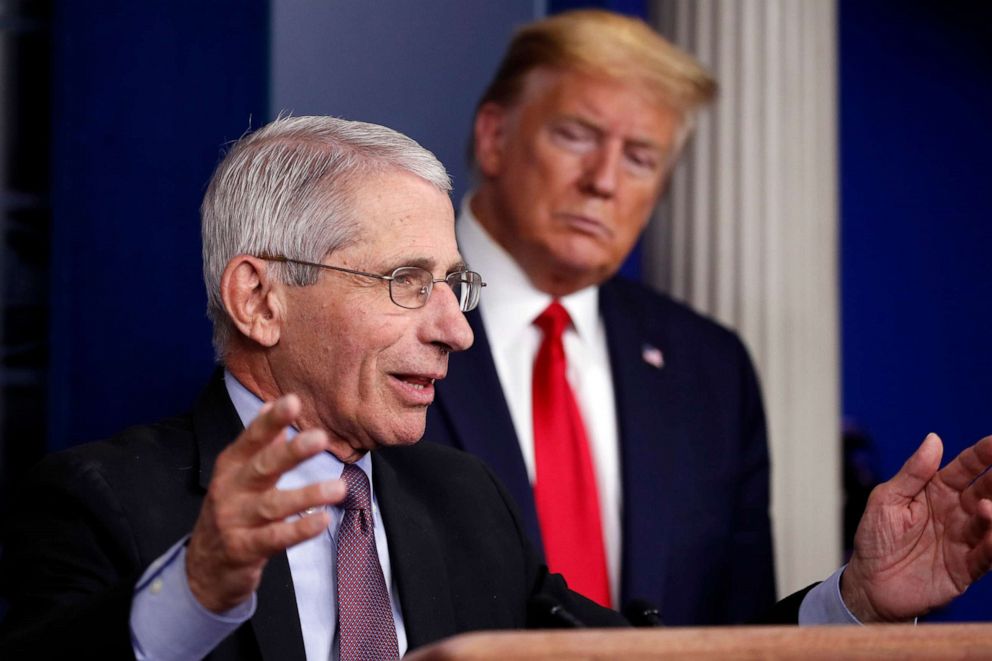
Cohen notes that everyday Americans likely aren't scouring news outlets for their appearances, and a television interview doesn't quite hold the same weight as a presentation from the White House Briefing Room from Birx, the coronavirus response coordinator, and Fauci, the nation's top infectious disease expert.
"It's critical that the public still be able to hear from experts who they trust, like Drs. Fauci and Birx, now more than ever, particularly as we are looking at reopening parts of our economy, and as the disease continues to spread across the country," Cohen said. "Relying on individual media interviews would be inconsistent with accepted crisis management techniques."
Cohen went on to say that without the regular input of trusted experts, the U.S. will experience "increased panic and fear among our populace, confusion among local officials, and difficulties for both the public and state governments to know how to respond to the virus," as it has already happened, he argued.
"That's exactly the wrong thing to do at this point in time of the crisis," Cohen said.
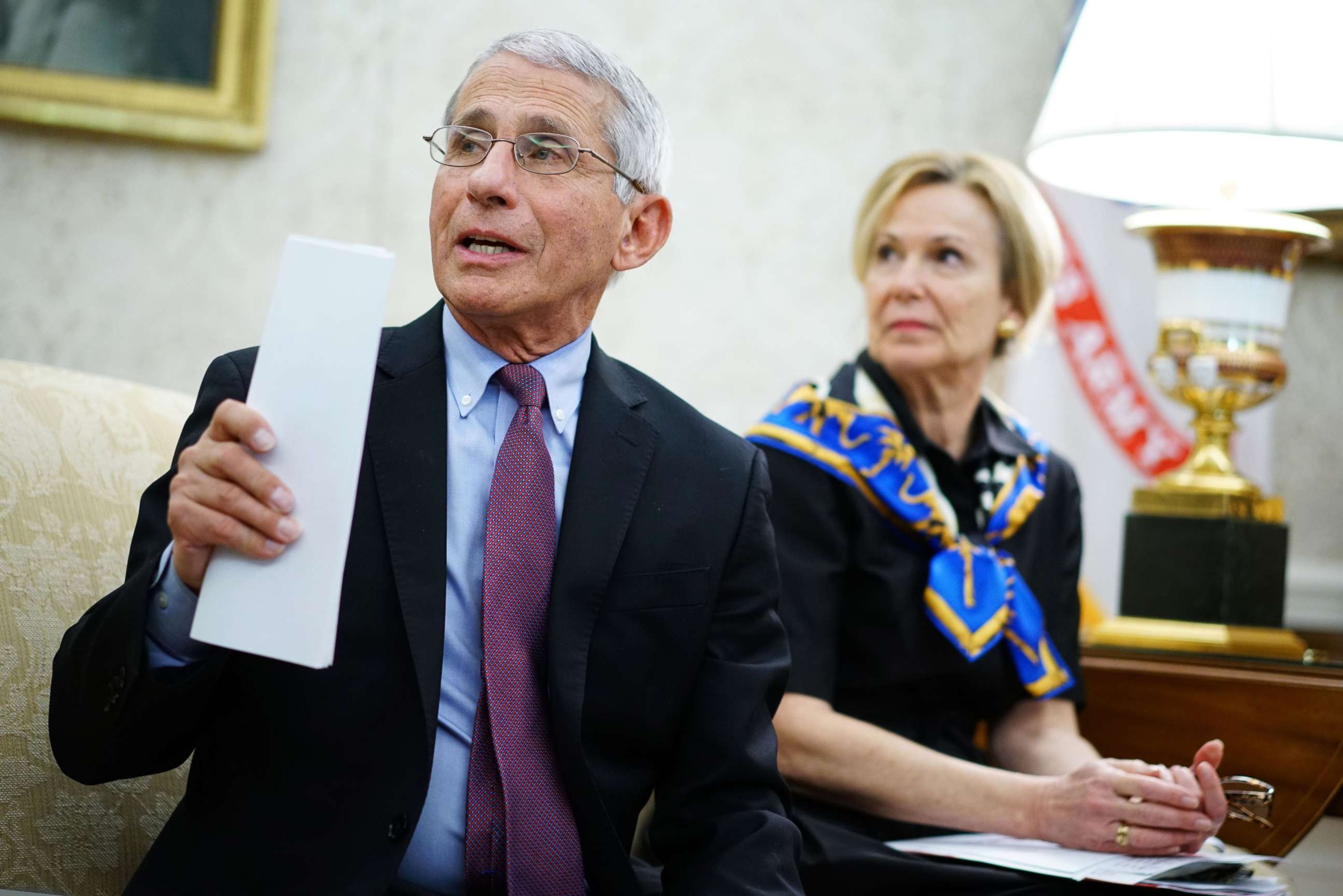
At an Oval Office event Wednesday afternoon, Trump appeared to acknowledge the respect Fauci and Birx have gained among Americans, and notably did not mention his own role in the daily briefings.
"I had no idea how popular the task force is until actually yesterday when I started talking about winding it down I got calls from very respected people saying, 'I think it'd be better to keep it going. It's done such a good job. It's a respected task force,'" Trump said. "I knew it myself, but I didn't know whether or not it was appreciated by the public but it is appreciated by the public."
A telling example of the influence the experts can have are Fauci's candid comments this week on the risks of reopening.
"It's the balance of something that's a very difficult choice, like how many deaths and how much suffering are you willing to accept to get back to what you want to be, some form of normality, sooner rather than later?" Fauci told CNN Monday.
Confronted with Fauci's comments, Trump conceded to ABC News' David Muir on Tuesday that "it's possible there will be some" deaths as states roll back restrictions.
Whether it's the necessity of widespread testing or promise of hydroxychloroquine, Fauci has become a real-time fact-checker to Trump.
"There are people that are going to be disagreeing with me," Fauci continued in the CNN interview, "some of them rather violently in many respects, you know, telling me that I'm crazy, fire Fauci, do this, do that. That's part of the game."
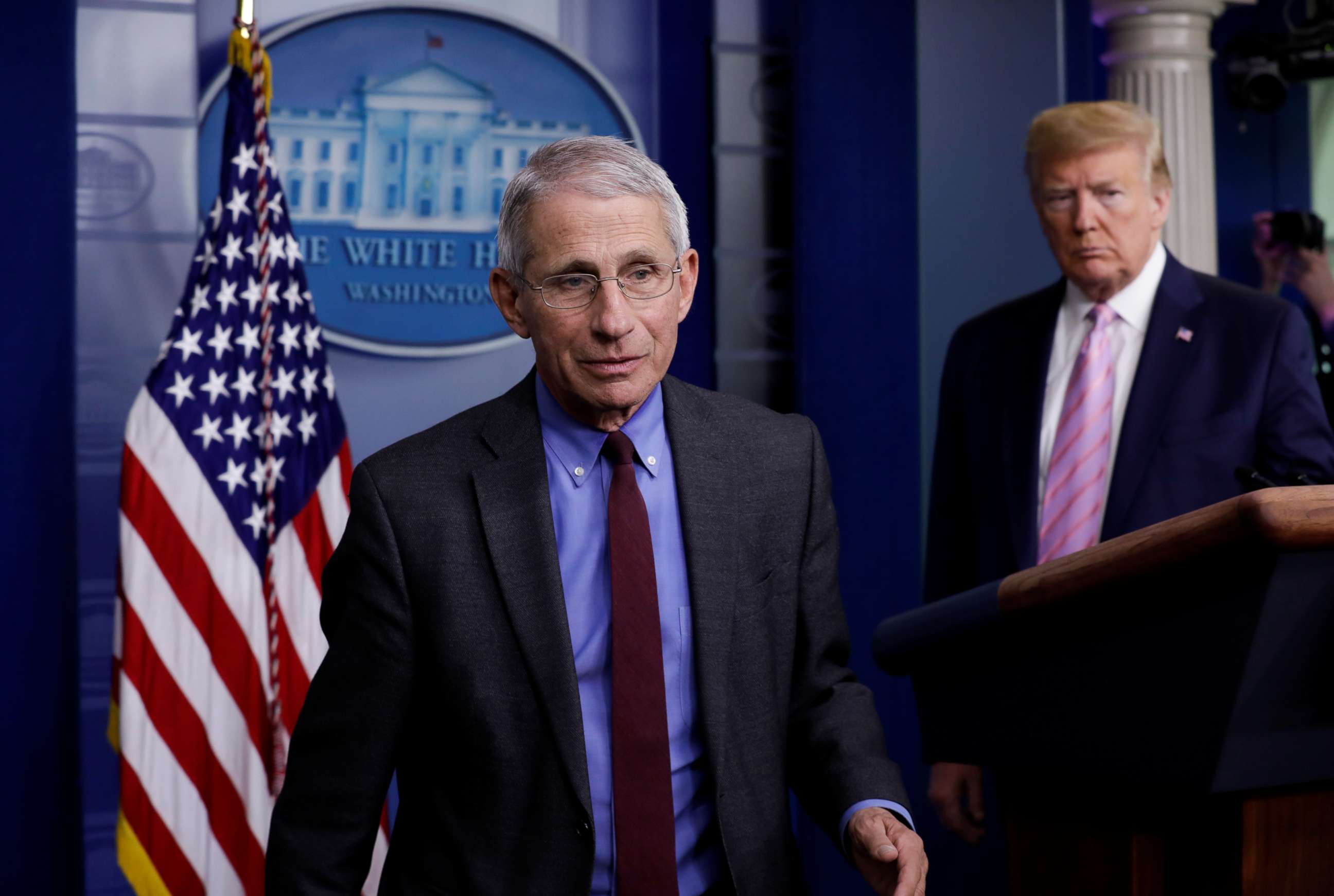
While President Trump speaks of the "different form" the coronavirus task force will take, how much influence Fauci will have going forward is unclear as the president and his top aides stress an economic rebound.
Trump did confirm Tuesday Fauci will testify before the Republican-led Senate next week, but defended his decision to block the doctor from appearing before what the president called the "a bunch of Trump haters" in the House.
Tune into ABC at 1 p.m. ET and ABC News Live at 4 p.m. ET every weekday for special coverage of the novel coronavirus with the full ABC News team, including the latest news, context and analysis.
Birx, meanwhile, has an office in the West Wing and has largely backed the administration in a diplomatic way, but in a recent interview on "Fox News Sunday," broke from the president, calling the anti-lockdown protests in Michigan "devastatingly worrisome," while Trump has appeared to support the defiance in the 2020 election battleground state led by Democratic Gov. Gretchen Whitmer.
"If they go home and infect their grandmother or their grandfather who has a comorbid condition and they have a serious or a very -- or an unfortunate outcome, they will feel guilty for the rest of our lives," Birx told Fox. "We need to protect each other at the same time we’re voicing our discontent."
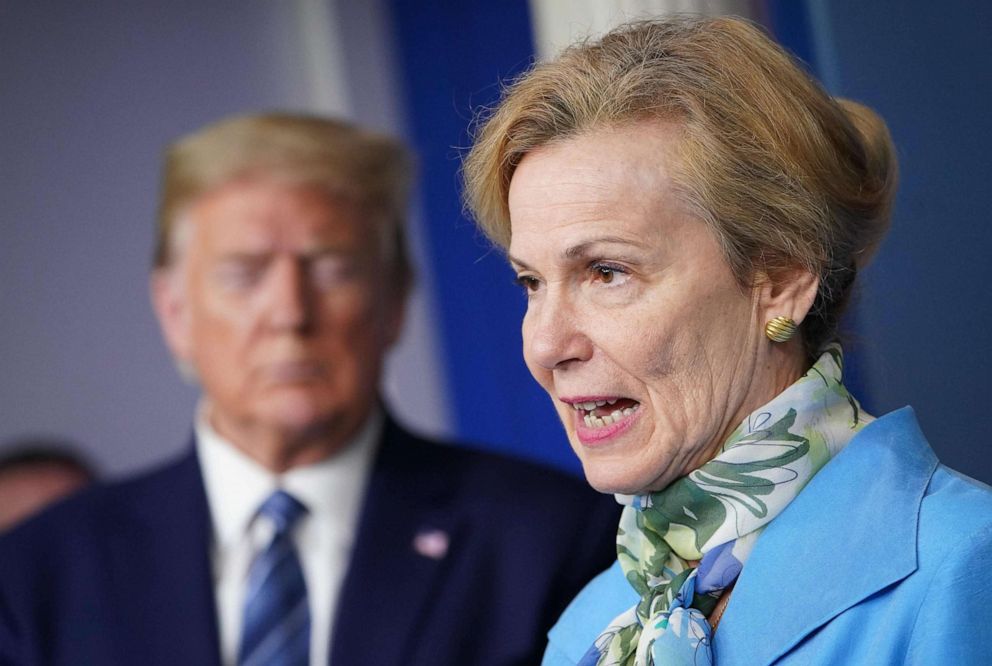
While the president has said he hopes his mega rallies return "very soon" and pushes for normalcy by the Fourth of July, if not before, Birx and Fauci have emphasized the need to continue practicing social distancing throughout the summer.
Despite the doctors' warnings that states should open gradually, the influential IHME model from the University of Washington has revealed that most states, if not all, initiating a reopening this week do not meet the White House's own "gating criteria" in its guidelines for reopening -- the president says the onus is on governors to keep outbreaks under control.
"We can't keep our country closed for the next five years. You can say there will be a recurrence and there might be, you know, some doctors, most doctors will say that will happen, and it'll be a flame and we're going to put out the flame," Trump said Tuesday.
Fauci has not been as delicate as Birx in speaking of the federal government's response. The outspoken doctor, having held his post as director of the National Institute of Allergy and Infectious Diseases for more 40 years, has demanded more from the administration -- including himself.
"Shame on us if we don't have enough tests by the time this so-called return might occur in the fall and winter," Fauci told National Geographic in an article published Monday. "I don't think there's a chance that this virus is just going to disappear," though the president has claimed the exact opposite.
"When you see somebody in an environment in which the infections are not going down, and then you see 30 to 40 people on a beach with no mask," Fauci said, "well that's very nice to have fun in the sun, but you're really putting yourself and everyone at risk for creating an even bigger spike in infections."
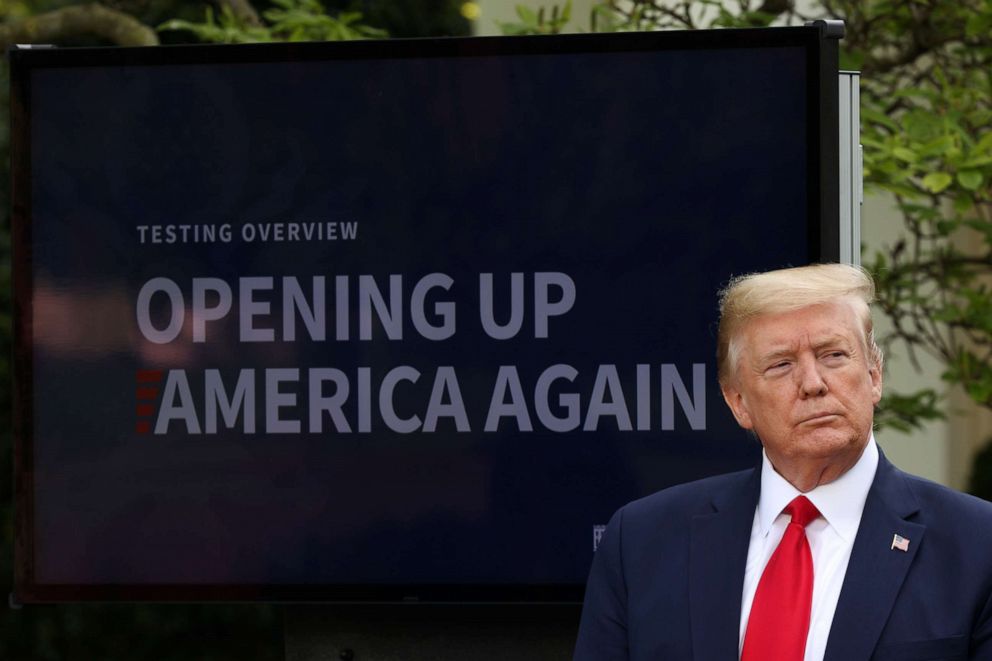
The task force also has a meeting scheduled for 4 p.m. Wednesday, but notably, that's the same time as the new White House press secretary Kayleigh McEnany's briefing.
If Fauci and Birx are at meeting with the task force at the same time, they can't show up in the White House briefing room.
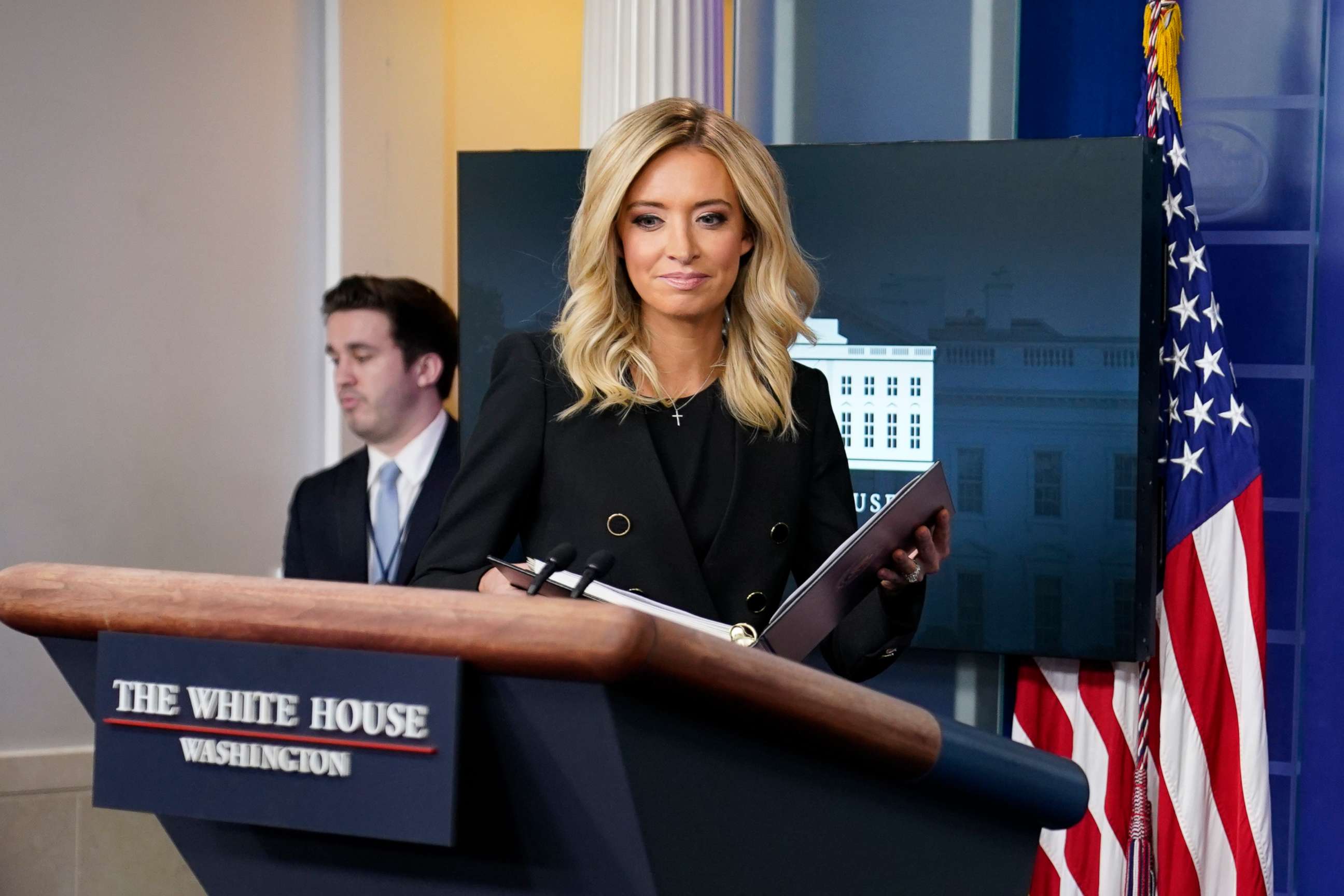
ABC News' Ben Gittleson, Jordyn Phelps, Katherine Faulders, Elizabeth Thomas and Cheyenne Haslett contributed to this report.
What to know about the coronavirus:
- How it started and how to protect yourself: Coronavirus explained
- What to do if you have symptoms: Coronavirus symptoms
- Tracking the spread in the U.S. and worldwide: Coronavirus map
